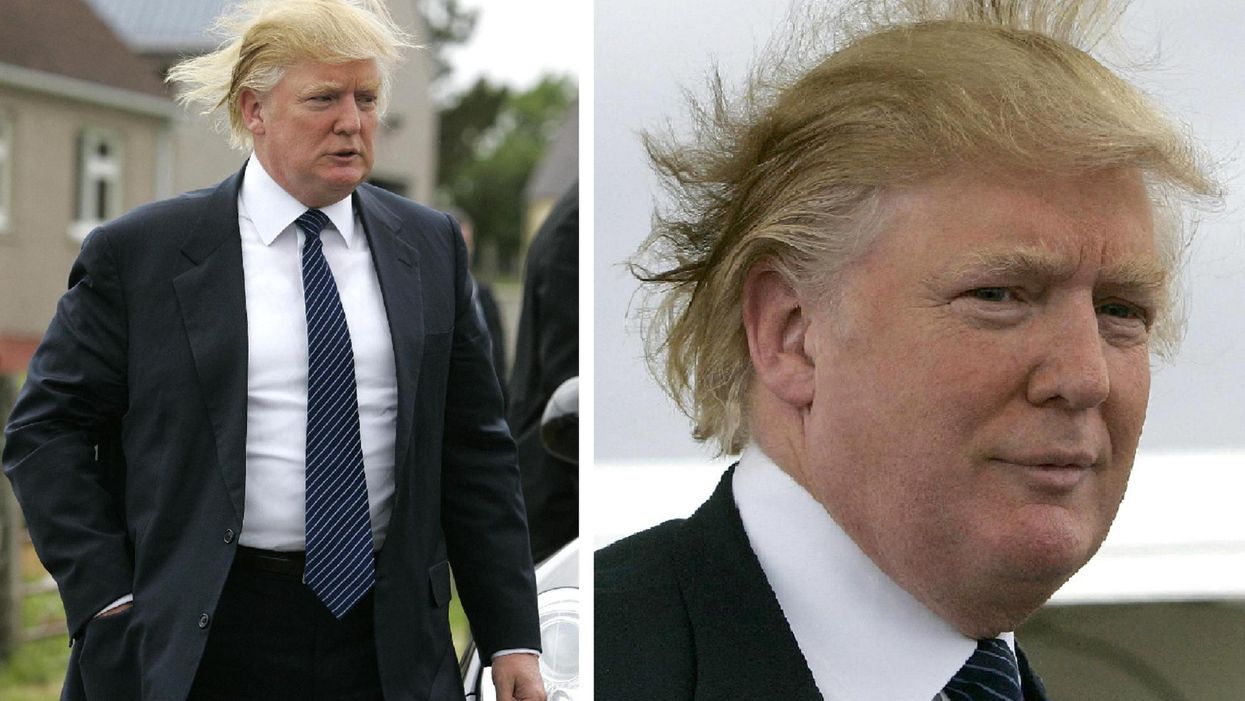News
Harriet Marsden
Feb 06, 2017

Picture:
PA Images / Andrew Milligan
President Donald Trump takes a prescription drug with potentially nasty side effects, according to his doctor.
Trump's personal physician, Dr Harold N. Bornstein, had previously released what was thought to be a comprehensive analysis of Trump's prescriptions, including details of a daily statin for cholesterol and lipids.
However, according to new information obtained by the New York Times in a telephone interview, Trump takes at least two more: an antibiotic to control rosacea (a minor skin ailment), and finasteride - potentially more serious.
First letter
Dr. Bornstein, whose father treated Trump in the past, released a bizarrely defiant four-paragraph letter about Trump's health in 2015.
In the letter, he detailed a daily dose of aspirin and one prescription: a low dose of statin, as well as referencing Trump's appendectomy at age ten.
He called Trump's test results "astonishingly excellent", his physical strength and stamina "extraordinary", and went on to declare:
If elected, Mr. Trump, I can state unequivocally, will be the healthiest individual ever elected to the presidency.
(With absolutely no medical or historical evidence whatsoever.)
Second letter
Compare that to another letter from the good doctor in September 2016, in which he corrects himself: Trump was apparently 11 during his appendectomy, not 10.
Again, in this letter he described the daily aspirin and "a lipid lowering agent (rosuvastatin)", and concluded that Trump was "in excellent physical health".
So again, one prescription drug. And now, in 2017, Dr Bornstein has disclosed two more prescriptions, including the one for finasteride.
What is finasteride?
Designed to treat male-pattern baldness and marketed as Propecia, finasteride is credited by Bornstein with maintaining Trump's signature comb over.
But according to the Washington Post, approximately 1,370 lawsuits have been filed against the company that markets finasteride, Merck, for reported sexual side effects.
Since the drug was initially approved for prostate treatment in 1992, there have been studies into the side effects, which could include impotence and decreased libido.
When it was approved in 1997 for treatment of hair loss, worries grew around the potential sexual side effects, because it was now being prescribed to much younger men without prior sexual dysfunction.
Merck told Men’s Journal that the company “stands behind the demonstrated safety and efficacy profile of Propecia.”
Side effects
- Since 2012, the FDA requires manufacturers to warn that the medication can be associated with "libido disorders, ejaculation disorders and orgasm disorders".
- A 2012 study into the potential irreversibility of the side effects found that 96 per cent of men continued to suffer from sexual dysfunction after finishing treatment with finasteride.
- A different study in 2012 associated suicidal thoughts among former users of finasteride.
- In 2013, a study was published which showed anxious or depressive symptoms in finasteride patients.
- Those taking finasteride were found to have different neuroactive steroid levels to non-patients, including heightened testosterone, which were associated with depressive symptoms.
It is unclear why Bornstein would not have disclosed these details in his two letters, or why he chose to do so now, or whether there are more prescriptions of which we are unaware.
But at least the mystery of the Donald's bizarre hair has now been solved.
More: Trump is obsessed with ratings. We don't think he'll like these ones.
More: A 700-year-old gargoyle looks almost exactly like Donald Trump and people don't know what to think
Top 100
The Conversation (0)













